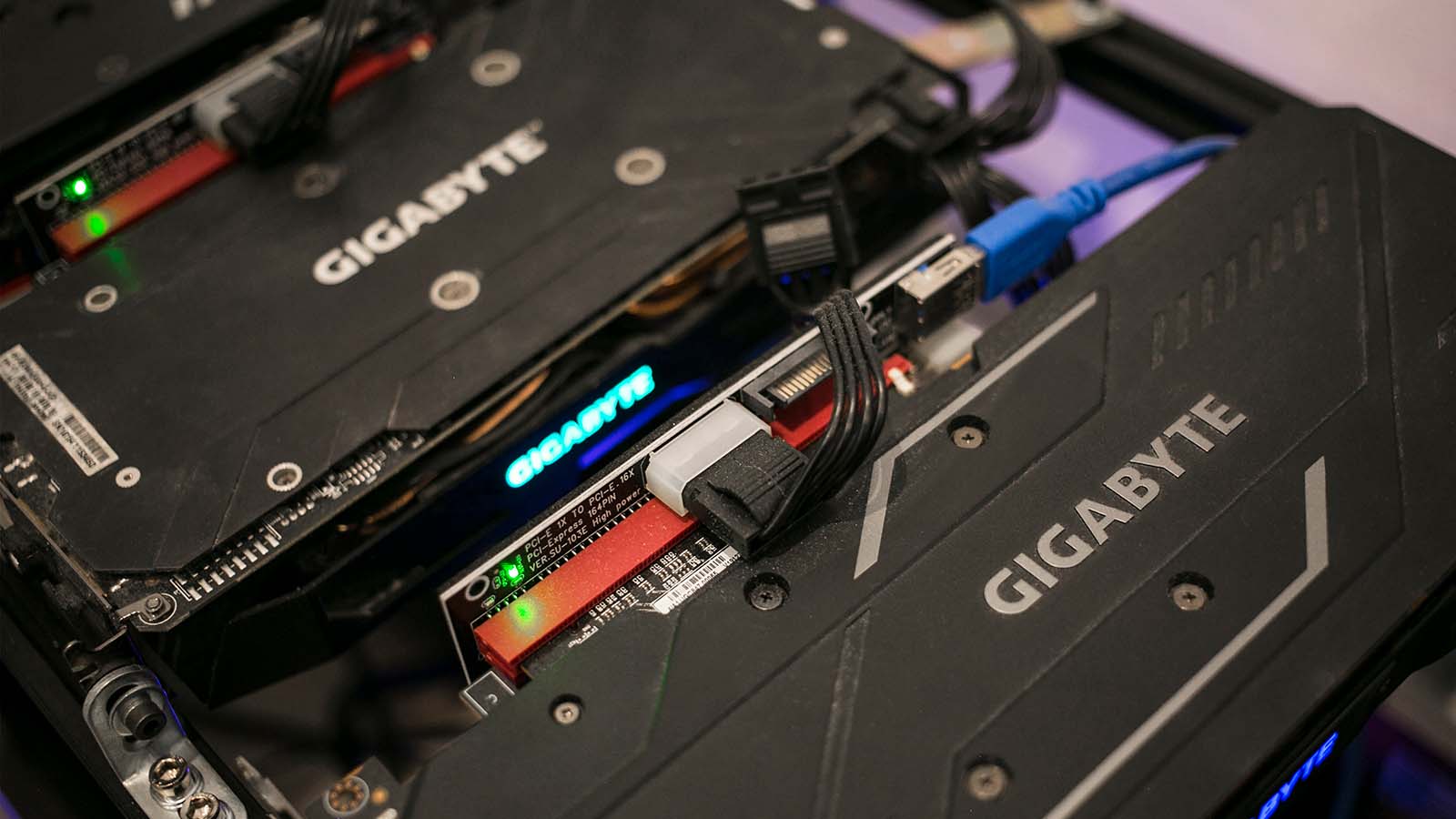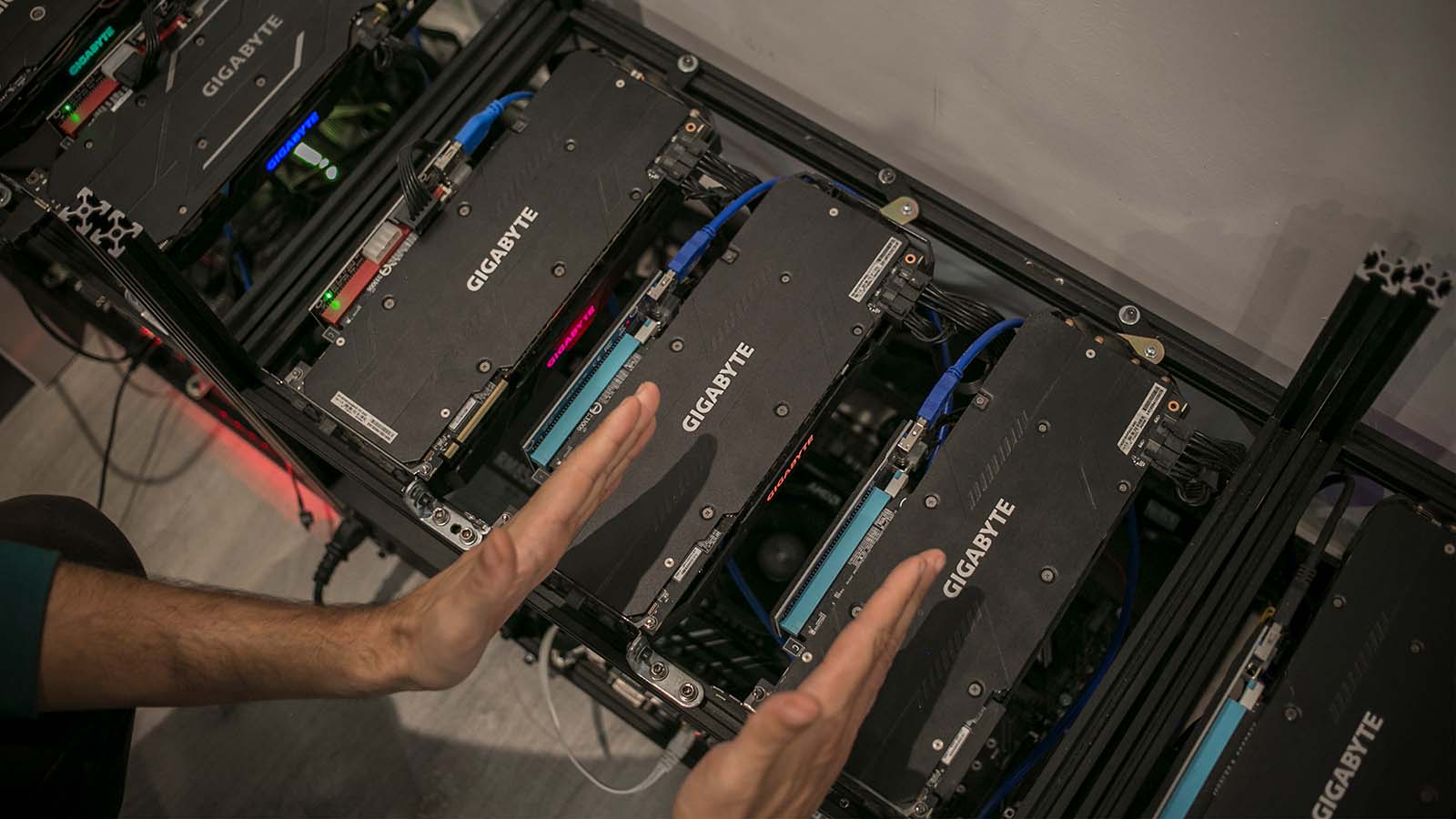Nvidia's anti-cryptomining GPUs have finally been 100% unlocked
It's less of an issue than you'd think

It took almost an entire year from their initial release, but the LHR (low hashrate) versions of Nvidia's RTX 30 series graphics cards have finally been completely unlocked by a mining software called Nicehash, restoring each card's respective mining capabilities.
Many of the best graphics cards were nearly impossible to find available to buy over the last two years because of the global chip shortage, a broader supply chain crisis at ports around the world and demand for consumer tech putting even more pressure on the availability of semiconductors needed by AMD and Nvidia for their products.
Part of this demand also included cryptominers who were buying up the available stock in bulk of popular GPUs during the height of the recent crypto currency boom. And while there are mixed opinions about how this affected overall availability for gamers and building hobbyists, there was certainly no love lost between the two groups which resulted in Team Green putting measures in place to make its consumer graphics cards less desirable to those hoping to use them to mine currencies such as Ethereum.
Almost the entire RTX 3000-series of cards was re-released with hash rate limiters (not including the GeForce RTX 3090 as it was deemed too expensive to attract the mining market) which limited their ability to mine currencies like ETH, but several of these were quickly defeated, with some software able to unlock cards to 70-80% efficiency in a matter of weeks.
As reported by WCCFTech, NiceHash has now announced that it can utilize 100% of available mining speeds using these previously restricted Ampere-series cards, stating on its website that:
"We are very excited to tell you that NiceHash QuickMiner (Excavator) is the first mining software to FULLY (100%) UNLOCK LHR cards! Now you can earn more profits than any other mining software on the market if you are using LHR graphics cards with NiceHash QuickMiner".
We don't have an LHR model GPU to verify this claim ourselves, so take the statement with a pinch of salt, but its also worth noting that GPU stock levels and pricing is currently sitting at the best numbers we've seen for many months, so it's unlikely you'll be fighting off swarms of competition if cards are viable for mining again.
Analysis: Don't worry about it – no, seriously

This news is unlikely to cause another shortage of graphics cards or even drive up the price of the stock currently available, and that's for a few different reasons. The main piece of good news for gamers is that Ethereum, the world's second most popular cryptocurrency after Bitcoin, started moving to proof-of-stake at the end of 2021.
Let me explain. Proof-of-work is a system where computers compete against each other to be the first to solve complex puzzles, which left it open to miners using warehouses full of consumer graphics cards to solve those puzzles, earning some ETH in the process. Proof-of-stake instead uses validators to find a block based on the number of tokens they hold, removing the need for those 'puzzles' to be solved.
This switch from a proof-of-work to a proof-of-stake model has removed a lot of the demand of the graphics cards, so where Ethereum was previously the largest cryptocurrency that is primarily mined using graphics cards (Bitcoin has mostly been mined on ASICs over the last few years), it will soon be inefficient to do so.
Sure, there are other currencies available that still use a Proof-of-work system, but these don't have the same grasp on the market that ETH did last year, so unless another crypto starts to rocket upwards in value, it'll take some time to see a similar situation unfold.
In reality, this shouldn't impact consumers who are trying to buy a new graphics card in any way, though it does mean that LHR versions of GPUs no longer serve the same purpose. With any luck, Nvidia continues to develop its hashrate limiting technology just in case we see a similar scenario unfold when it releases its Lovelace series of graphics cards to act as a deterrent.
Get daily insight, inspiration and deals in your inbox
Sign up for breaking news, reviews, opinion, top tech deals, and more.
Jess is a former TechRadar Computing writer, where she covered all aspects of Mac and PC hardware, including PC gaming and peripherals. She has been interviewed as an industry expert for the BBC, and while her educational background was in prosthetics and model-making, her true love is in tech and she has built numerous desktop computers over the last 10 years for gaming and content creation. Jess is now a journalist at The Verge.
